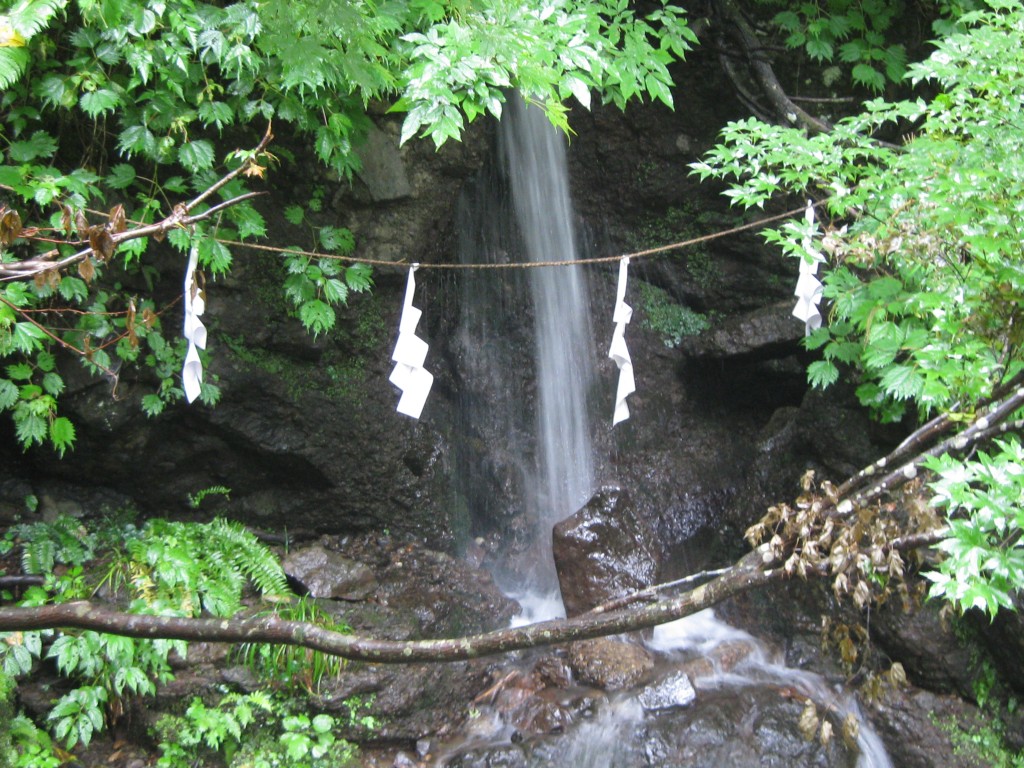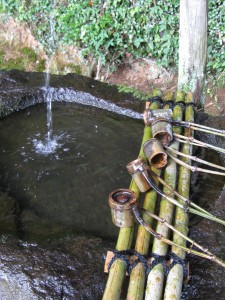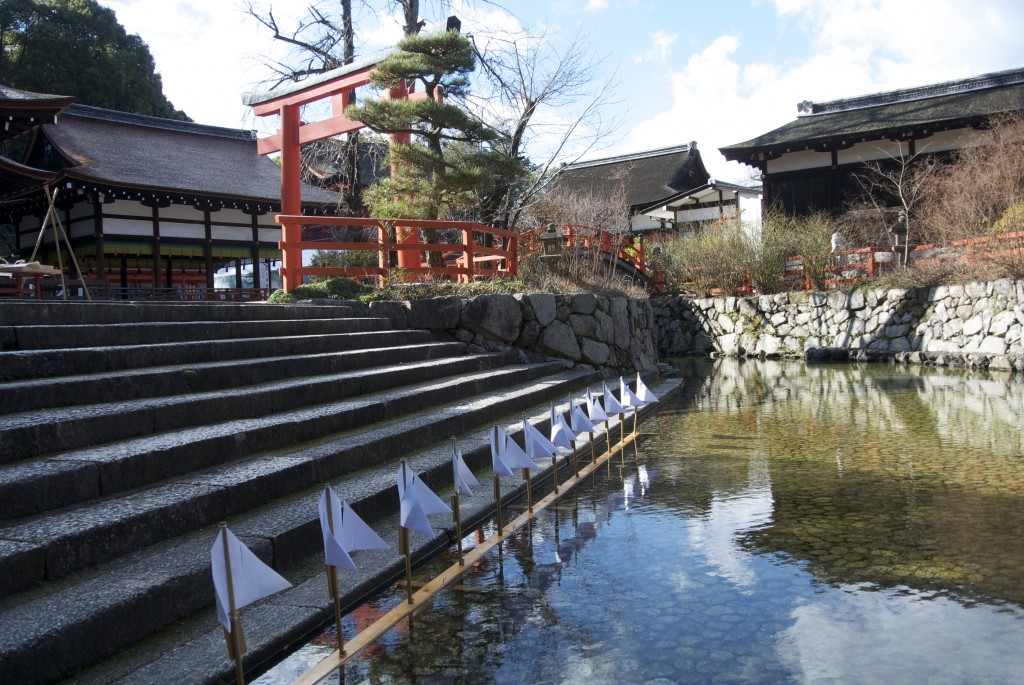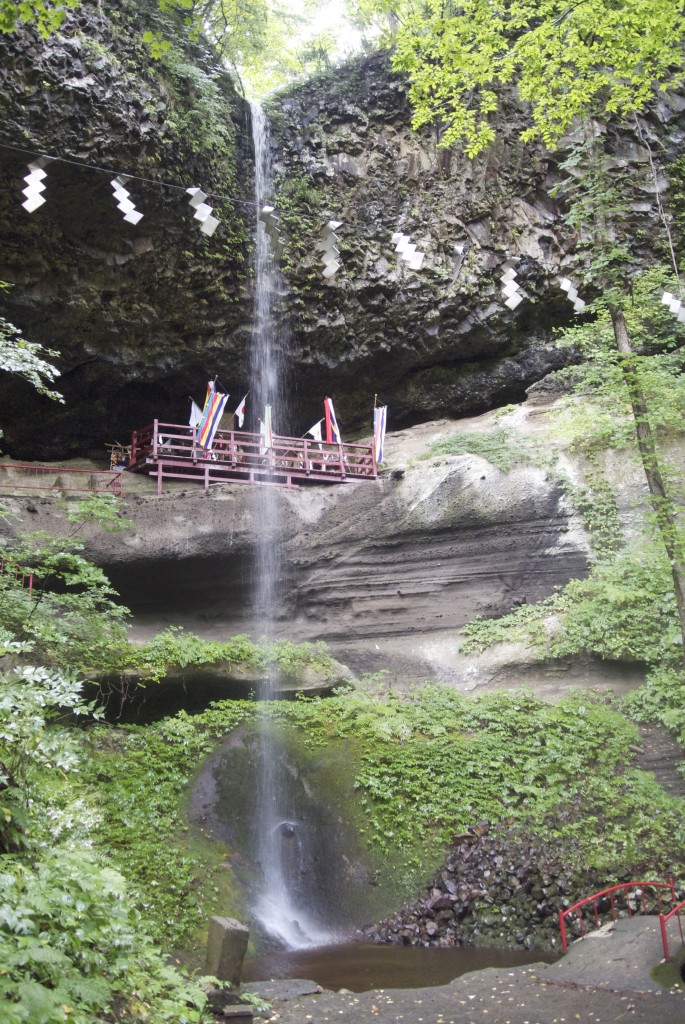
Sacred spring at Togakushi Jinja
BBC’s The Why Factor is currently featuring a most interesting programme on sacred water. It’s 18 minutes long and you can listen on its wonderful website here by clicking on the Free Download.
****************************************
“Why can the seemingly everyday activity of bathing mean so many different things for millions of people around the world? For some, unwinding in a nice, hot, soothing bath is a just reward after a long day’s work. For others, it’s an imperative act of religious faith.

Bamboo temizuya with water for purificaiton
In the first of two programmes on bathing, Mike Williams asks: Why do we bathe for purification? He looks at the rituals and symbolism of bathing: to wash away our sins, cleanse our souls, to prepare ourselves for an encounter with the divine.
From ceremonies of purification of the Christian baptism to the Sacred River Ganges, from the ancient Roman Empire to the modern Middle East, he traces the history of ideas associated with healing, spiritualism, purification and re-birth through the act of bathing.
***********************************
Amongst the items discussed is Christian baptism and the largest act of purification in the world, in the sacred Ganges river (30 million!!). Rebirth and cleansing are the key elements, expressed by showing outwardly what one strives for inwardly. One interesting observation is that washing the hands and mouth, as in Shinto, is not so much a symbolic cleansing of oneself but an intention not to defile the sacred by touch or breath.
Islam uses water to reflect on sacredness, rather than seeing it as sacred itself. Rather than immerse themselves in the water, muslims use it sparsely believing that one should not use more than one needs. It’s the basis of modern Islamic environmentalism.
At Bath in England, the Romans made a bath out of a hot spring that had been used for centuries before. Rain that had dropped 8000 years before came up eventually in the form of hot water, like a magical gift from out of Mother Earth. We take water these days for granted; we need to recall just how precious a resource it is.

Sacred water in the Mitarashi Pond at Shimogamo Jinja in Kyoto

Sacred water in free flow at a shugendo waterfall in Aomori Prefecture

Leave a Reply